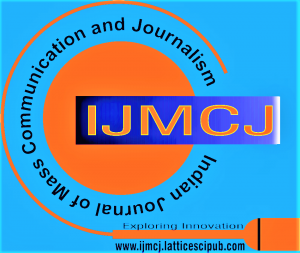![]()
The Stakeholders’ Views on the Media Authority Act 2013 on Freedom of Expression in South Sudan
Gai Peter Manyuon1, Darius Mukiza2
1Gai Peter Manyuon, Department of School of Journalism and Mass Communication, University of Dar es Salaam (Tanzania).
2Dr. Darius Mukiza, Lecturer, Department of School of Journalism and Mass Communication, University of Dar es Salaam (Tanzania).
Manuscript received on 28 May 2025 | First Revised Manuscript received on 05 June 2025 | Second Revised Manuscript received on 16 August 2025 | Manuscript Accepted on 15 September 2025 | Manuscript published on 30 September 2025 | PP: 8-16 | Volume-5 Issue-1, September 2025 | Retrieval Number: 100.1/ijmcj.D113204040625 | DOI: 10.54105/ijmcj.D1132.05010925
Open Access | Editorial and Publishing Policies | Cite | Zenodo | OJS | Indexing and Abstracting
© The Authors. Published by Lattice Science Publication (LSP). This is an open-access article under the CC-BY-NC-ND license (http://creativecommons.org/licenses/by-nc-nd/4.0/)
Abstract: This study critically explores stakeholders’ perceptions of the Media Authority Act 2013 and its influence on the state of freedom of expression in South Sudan. Despite constitutional and legal provisions that ostensibly protect media rights, concerns persist regarding the actual realisation of these freedoms in practice. The research was conducted to investigate the impact of the Media Authority Act on journalistic practices, regulatory autonomy, and public discourse, with a particular focus on how legal frameworks either promote or hinder freedom of expression. This study addresses a pressing issue in South Sudan’s democratic development, where media freedom is often caught between state control and civil society’s demand for openness and accountability. A mixed-methods approach was employed, incorporating qualitative data from 25 semi-structured interviews with journalists, civil society actors, media regulators, and government representatives, as well as quantitative data from surveys administered to 80 media practitioners across Juba, Wau, and Malakal. The analysis was guided by theories of media regulation and freedom of expression, particularly drawing from liberal democratic and critical legal theory. Findings reveal that while the Media Authority Act 2013 is framed as a regulatory mechanism to ensure professionalism and accountability in media operations, its implementation is often marred by political interference, vague legislative language, and inconsistent enforcement. Stakeholders reported a general lack of institutional independence, widespread fear of censorship, and restrictions on critical reporting, particularly on political and security issues. These challenges have led to self-censorship among journalists, limiting the media’s ability to serve as a watchdog of government activity. This study concludes that although the Media Authority Act has the potential to support a more structured media environment, its current application undermines the very freedoms it purports to safeguard. Reforming the Act to align with international human rights standards, coupled with building the institutional capacity and independence of regulatory bodies, is essential for fostering a free, pluralistic, and democratic media space in South Sudan. The research contributes to ongoing discussions on media freedom in post-conflict states and provides practical policy recommendations for promoting freedom of expression within fragile governance contexts.
Keywords: Media Authority Act, Freedom of Expression, South Sudan, Media Regulation, Stakeholder Perceptions, Legal Framework, Censorship, Democratic Governance.
Scope of the Article: Media Law
